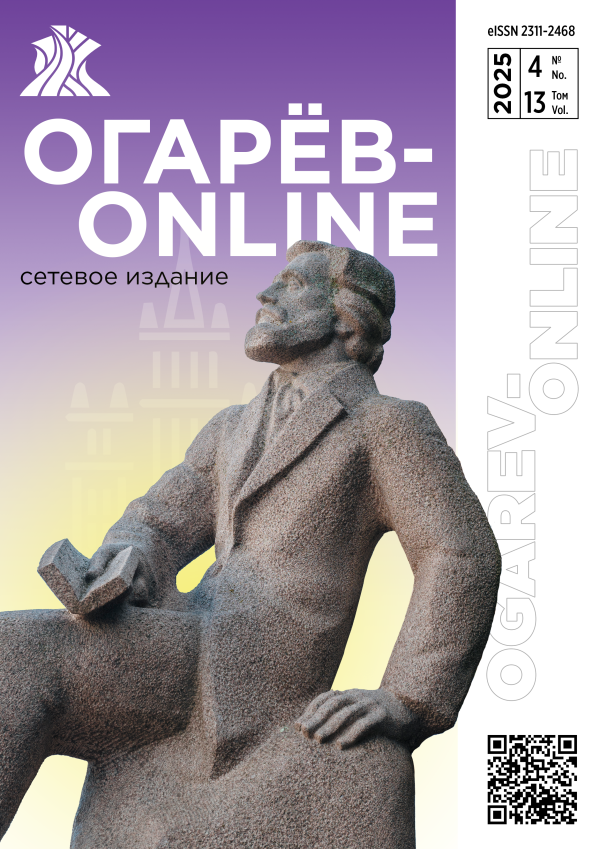Vol 8, No 3 (2020)
- Year: 2020
- Published: 15.03.2020
- Articles: 10
- URL: https://ogarev-online.ru/2311-2468/issue/view/18107
Full Issue
 2-7
2-7


 8-16
8-16


The effect of glinite additives on strength characteristics of modified cement stone
Abstract
The results of the study of the strength characteristics (tensile strengths under compression and tensile bending) of cement stone with the addition of thermally activated clay from the Staroshaigovsky deposit of the Republic of Mordovia are presented. The possibility of increasing the strength characteristics of cement systems by optimizing the parameters of clay firing and the dosage of the modifier is established.
 17-22
17-22


 23-28
23-28


 29-33
29-33


 34-38
34-38


Reinforced bendable glued wooden elements in stress-deformed state
Abstract
The article presents an overview of the research works aimed at studying the bending strain and fracture in reinforced glued wooden structures. The study provides theoretical and practical data on the methods of reinforcing glued wooden elements in order to ensure high reliability of the structures under operational load.
 39-43
39-43


The effect of citric acid on filled cement composites
Abstract
The effect of the carboxylic acid on cement composites filled with zeolite-containing rocks was studied. The elemental composition of the sediment was determined by scanning electron microscopy. The analysis of the filtrate after holding the samples of cement stone in citric acid is given. The change in the pH medium in model solutions is considered.
 44-51
44-51


Application of fractal analysis methods to study deformation and destruction mechanisms of epoxy polymer samples under tensile stresses
Abstract
The paper proposes an approach to study the mechanism of deformation of epoxy polymers based on the methods of fractal calculations. The advantages of the method for determining the fractality index of the deformation curves of polymer samples using the minimum coverage method are shown. An algorithm for the quantitative determination of the location of the "critical" points of the deformation curves of polymer samples under tension is suggested.
 52-59
52-59


Modified fine-grained concretes from high-filled self-compacting mixtures containing fine natural quartz sand
Abstract
The results of the study of water demand of fine natural quartz sands and physical and mechanical properties of self-compacting fine-grained concretes with the use of carbonate filler-microcalcite are given. The compositions of modified fine-grained concretes of compressive strength class C20÷C90 from self-compacting mixtures of workability class SF1 are developed.
 60-67
60-67

















